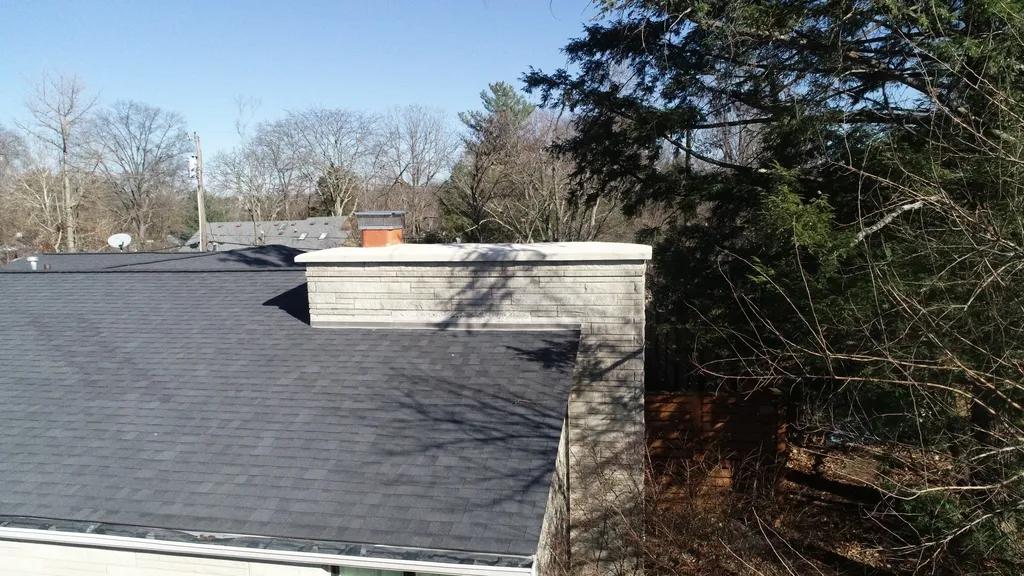Chimney maintenance is an essential aspect of home ownership, ensuring the safety and functionality of your fireplace. Inside chimney repairs are a crucial component of this maintenance, yet many homeowners are unsure of what this process entails. In this comprehensive guide, we will delve into the essential steps and considerations involved in inside chimney repairs, providing you with the knowledge and confidence to effectively address any issues that may arise. From common problems to recommended repair methods, this article serves as a valuable resource for homeowners looking to maintain the integrity of their chimney and fireplace.
Table of Contents
- Overview of Common Chimney Issues
- Signs that Your Chimney Needs Repairs
- Importance of Regular Chimney Maintenance
- Professional Chimney Repair Services: What to Expect
- Q&A
- In Retrospect

Overview of Common Chimney Issues
When it comes to maintaining your chimney, it’s essential to be aware of the common issues that can arise. One of the most frequent problems homeowners face is creosote buildup. Creosote is a sticky, tar-like substance that forms when wood is burned, and if not properly removed, it can lead to chimney fires. Regular chimney cleanings by a professional can help prevent this issue.
Another common chimney issue is chimney leaks. These leaks can be caused by a variety of factors, including cracked mortar, damaged flashing, or a faulty chimney cap. It’s important to address leaks promptly to prevent water damage to your home. Additionally, issues with the chimney liner, such as cracks or deterioration, can impact the safety and efficiency of your chimney. Regular inspections by a certified chimney sweep can help identify and resolve these problems before they become serious.

Signs that Your Chimney Needs Repairs
If you notice any of the following signs, it may be time to consider repairing your chimney:
- Cracks in the chimney flue
- Water leaking into the fireplace
- Build-up of creosote or soot
- Smoke backing up into the house
Ignoring these issues can lead to more severe damage to your chimney and potentially pose a safety hazard to your home. It is essential to address these problems promptly to prevent further structural issues and ensure your chimney is safe to use.

Importance of Regular Chimney Maintenance
Regular Chimney Maintenance is Crucial for a Safe Home
Keeping your chimney in good working condition is essential for the safety and well-being of your home. Regular maintenance not only prevents potential hazards like carbon monoxide poisoning and chimney fires, but also ensures that your chimney functions efficiently. By scheduling regular inspections and cleanings, you can catch any issues before they escalate into costly repairs.
Here are some reasons why regular chimney maintenance is so important:
- Prevent chimney fires: Creosote buildup and blockages can lead to chimney fires, putting your home and family at risk.
- Improve air quality: A clean chimney allows smoke and toxins to be safely vented out of your home, improving indoor air quality.
- Extend the life of your chimney: Regular maintenance can help identify and address minor issues before they become major problems, ultimately prolonging the life of your chimney.

Professional Chimney Repair Services: What to Expect
When hiring professional chimney repair services, there are several key components to expect during the process. A reputable chimney repair company will typically start with a thorough inspection of the chimney to assess any existing damage or issues that need to be addressed. This inspection may include checking for cracks, leaks, creosote buildup, or other signs of wear and tear.
<p>Once the inspection is complete, the chimney repair experts will provide a detailed explanation of the necessary repairs and the estimated cost. Common repair services may include <strong>tuckpointing, chimney crown repair, flue liner replacement, chimney cap installation,</strong> and more. By hiring a professional team, you can rest assured that your chimney will be restored to its optimal condition, ensuring safe and efficient operation for years to come.</p>Q&A
Q: What are the common causes of chimney damage that may require repairs?
A: Common causes of chimney damage include water leaks, cracks in the masonry, damaged chimney liner, and general wear and tear.
Q: How can I determine if my chimney needs repairs?
A: Signs that your chimney may need repairs include water stains on the ceiling or walls near the chimney, crumbling bricks or mortar, a strong odor of creosote, and difficulty starting a fire.
Q: What are some DIY chimney repair options?
A: DIY chimney repairs may include patching small cracks with mortar, replacing damaged bricks or flashing, and cleaning the chimney flue.
Q: When should I hire a professional for chimney repairs?
A: It is recommended to hire a professional for chimney repairs if you are unsure of the extent of the damage, if the repairs require specialized equipment, or if the repairs involve the chimney liner or the chimney cap.
Q: How can I prevent chimney damage in the future?
A: To prevent chimney damage, regular chimney inspections and cleanings are essential. Additionally, installing a chimney cap and waterproofing the chimney can help protect it from water damage.
In Retrospect
In conclusion, maintaining a healthy chimney is crucial for the safety and efficiency of your home heating system. By following the essential guide to inside chimney repairs outlined in this article, you can ensure that your chimney is in proper working condition and reduce the risk of potential hazards. Remember to always consult with a professional chimney sweep or repair expert for any major repairs or concerns. With regular maintenance and repairs, you can enjoy a warm and cozy home while ensuring the longevity of your chimney. Thank you for reading and stay safe.


